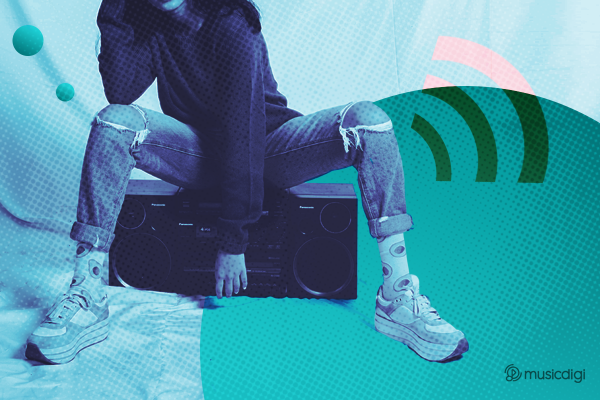If you are an independent musician and you want to make a name for yourself, you need to find ways to promote yourself. There are a lot of different ways to put yourself out there, like playing gigs, posting our music on Youtube or Soundcloud, and sending demos to record labels. But a lot of people overlook the importance of radio. When you are promoting your music, getting radio plays is still one of the best ways to get heard.
Even though you probably won’t be able to make it onto the big national stations, there are plenty of great indie radio stations out there that are willing to promote new artists and help them find a new fanbase. If you are promoting your music and you want to get played on the radio, check out these great tips to help you improve your chances.
Make Sure That Your Music Is Ready
If anybody is going to consider playing your music on the radio, you need to make sure that it is ready. You need to get your music critiqued by a professional and create a professional press kit. If you just send in a rough demo with low production value, the station will not consider you.
Reach out to other professional musicians and ask them to give you feedback on your music. They will look at things like arrangement, composition, production value and mastering. These are all things that radio curators will look for, so it is important that your music is ‘radio ready.’
Next, you need to put together an EPK (electronic press kit). This gives the radio curator information about your history as an artist. You need to include a biography and discography (if applicable), some samples of your music and links to music that you have posted online, a performance calendar and details of your recent gigs (videos of live shows are particularly helpful), some photos of you and your cover art, details of any press coverage, and your contact details. With the right EPK (electronic press kit), you will find that promoting your music is a lot easier. Read our full guide to
creating a press kit here.
Research Radio Stations
Promoting your music on the right platforms is vital if you want to build a fanbase. Getting played on a big station is always good, but it is incredibly difficult if you do not already have a big following. It is far better to start with small indie stations and look for ones that specialize in your genre of music. Getting played on genre specific stations will ensure that your music is heard by the right people. Spend some time doing research and put together a list of stations that you think are likely to play your music.
*You can see some tips from a previous post on
how to get your music played on the radio*
Contact Stations
When you are trying to contact stations, start by looking at the contact page on their site so you can work out who the curators are. Then, you can look them up on social media and find a direct email for them. Some stations may have an email for submissions on their site but, in some cases, you may need to do a bit of digging to find the right person to contact.
Once you have the right email address, you need to write a short, snappy email with a few details about you and your music. Attach your EPK (electronic press kit), and provide a link to a private dropbox with your music on it.
If you have not heard anything after a week or so, don’t worry. Radio curators get a lot of submissions and it can take some time for them to get back to you. It’s ok to send them a casual follow up email with any new details, like upcoming gigs etc. but don’t keep spamming them with endless emails.
If you follow these steps when you are promoting your music, you should be able to get some radio plays and start building a bigger fanbase.
Ready to unleash your music? Distribute your music worldwide with
MusicDigi.
